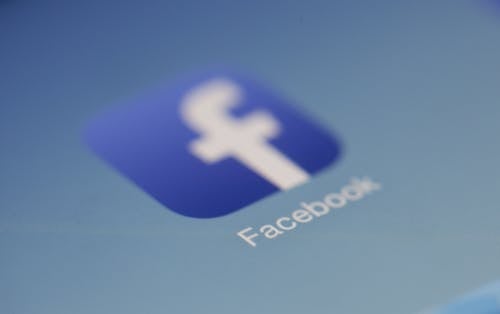Facebook Vs. Australia, Who Wins The Debate?
Australia cracked down on Facebook and Facebook struck back. Here's a recap what happened.
Australia Cracks Down on Big Tech
Australia passed a law that would force advertising giants such as Facebook and Google to pay media companies for monetizing their news content when it’s posted to their social media platforms.
Facebook responded with an Overly Broad Content Block.

Last month Google also threatened to close its search engine in Australia if the law isn’t amended. But it’s Facebook that screwed its courage to the sticking place and flipped the chaos switch first.
The collateral damage was interesting.
Facebook's news ban hammer having a lot of collateral damage. pic.twitter.com/mP4pfd3nL5
— Josh Taylor (@joshgnosis) February 17, 2021
Me to Facebook: Is the Bureau of Meteorology considered an Australian news publisher or was it mistakenly blocked?
— Queenie Wong (@QWongSJ) February 17, 2021
Facebook spox: It is not – we are working to reverse this. pic.twitter.com/S8aSSIprdi
In the wake of Facebook’s unilateral censorship of all sorts of Facebook pages, parliamentarians in the country accused the tech giant of “an assault on a sovereign nation”.
The Debate
If the tech giant was hoping to kick off a wider debate about the merits of Australia’s (controversial) plan to make tech pay for news (including in its current guise, for links to news — not just snippets of content, as under the EU’s recent copyright reform expansion of neighbouring rights for news) — Facebook has certainly succeeded in grabbing global eyeballs by blocking regional access to vast swathes of useful, factual information.
However, Facebook’s blunt action has also attracted criticism that it’s putting business interests before human rights — given it’s shuttering users’ ability to find what might be vital information, such as from hospitals and government departments, in the middle of a pandemic.
The Real Story (According to Nick Clegg, Facebook VP)
Here is Facebook's "Real Story" take.
Last week, in a move that will have felt abrupt and dramatic to many, Facebook announced it was stopping the sharing of news on its service in Australia. This has now been resolved following discussions with the Australian Government — we look forward to agreeing to new deals with publishers and enabling Australians to share news links once again.
At the heart of it, in Facebook’s view, is a fundamental misunderstanding of the relationship between Facebook and news publishers. It’s the publishers themselves who choose to share their stories on social media, or make them available to be shared by others, because they get value from doing so. That’s why they have buttons on their sites encouraging readers to share them. And if you click a link that’s shared on Facebook, you are directed off the platform to the publisher’s website. In this way, last year Facebook generated approximately 5.1 billion free referrals to Australian publishers worth an estimated AU$407 million to the news industry.
The assertions — repeated widely in recent days — that Facebook steals or takes original journalism for its own benefit always were and remain false. We neither take nor ask for the content for which we were being asked to pay a potentially exorbitant price.
Under the Australian law, as it was proposed, Facebook would have been forced to pay potentially unlimited amounts of money to multi-national media conglomerates under an arbitration system that deliberately misdescribes the relationship between publishers and Facebook — without even so much as a guarantee that it is used to pay for journalism, let alone support smaller publishers.
It’s like forcing car makers to fund radio stations because people might listen to them in the car — and letting the stations set the price.
The discussion was entirely one-sided on Twitter. No one defended either Facebook or Google until I chimed in.
What copyright issue?
— Mike "Mish" Shedlock (@MishGEA) February 28, 2021
If it is, the solution is simple. If a company does not want links to its articles on FB or Google all they have to do is say STOP. Right?
But they do want the coverage. They just are PO's that FB makes more. So what?
I dislike FB but they win the debate https://t.co/4lfOInUKHW
Copyright Issue?
If this was a copyright issue, then other media companies ought not be posting links to their articles on Facebook.
Google is a bit different as it does generate and post links.
But the remedy is the same.
All these media network companies have to do is tell Google and Facebook (FB) not to link to their stories.
Facebook forced that issue, a bit clumsily, but brought its point home. The result was humorous.
Assault on a Sovereign Nation
Australia legislators accused Facebook of “an assault on a sovereign nation”.
What a hoot.
Facebook and Google are so popular that they are considered vital to Australia which then demanded Facebook keep providing free services.
Facebook and Google clearly win the debate. Companies can easily opt out if they do not want FB or Google to link to their stories.
It is in FB's and Google's interest to help companies that do generate content, but that is for FB and Google to decide, not a government mandated arbitration system designed to punish big tech.
For the record, I am not a Facebook fan and do not care much for its platform, security, sharing, etc. I do like Twitter (TWTR) and Google (GOOG).
Regardless of my likes and dislikes, newspapers are dying. So are book stores and even malls. Things change.
The irony in this nonsensical debate is that Google and Facebook deliver hits to struggling news organizations and that helps keep them alive.



